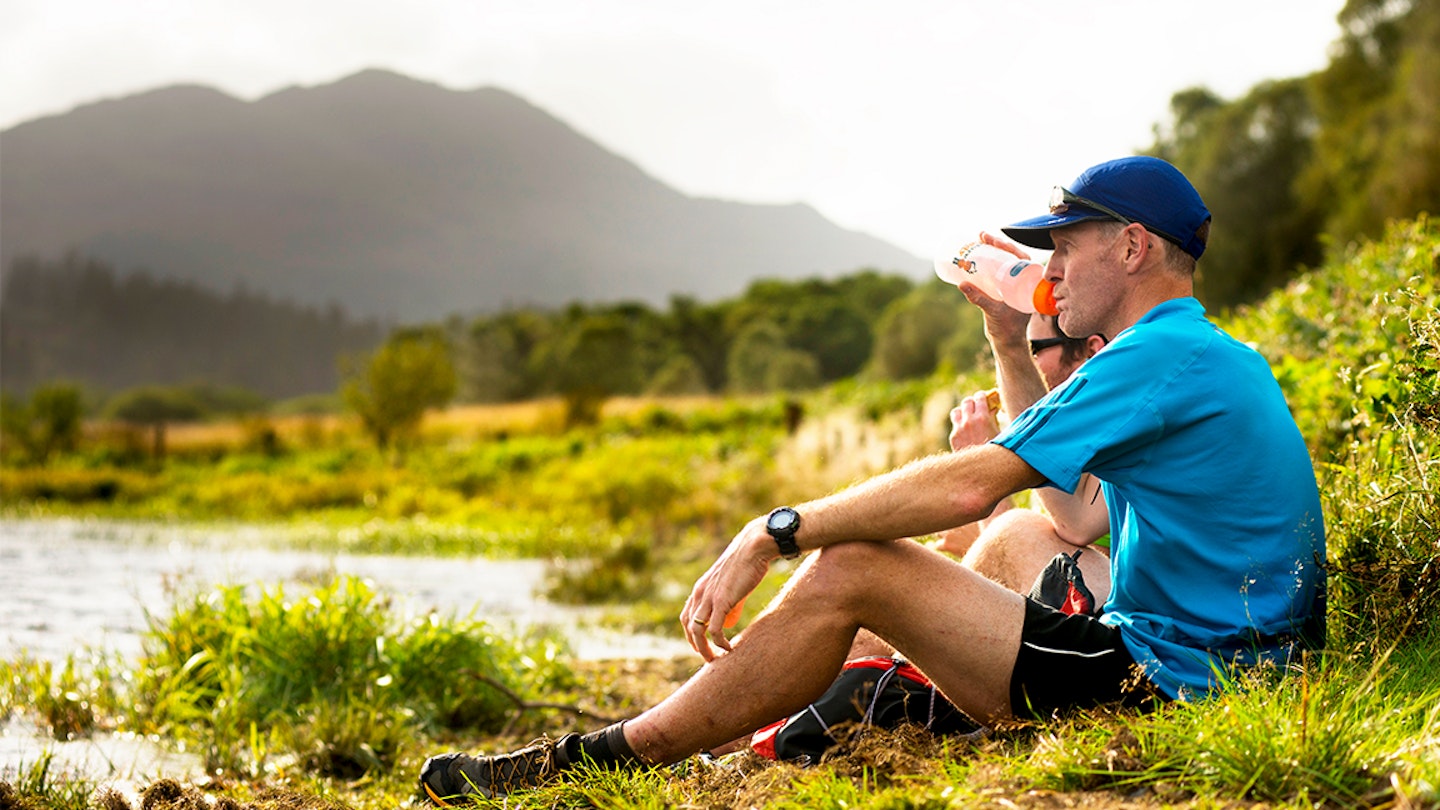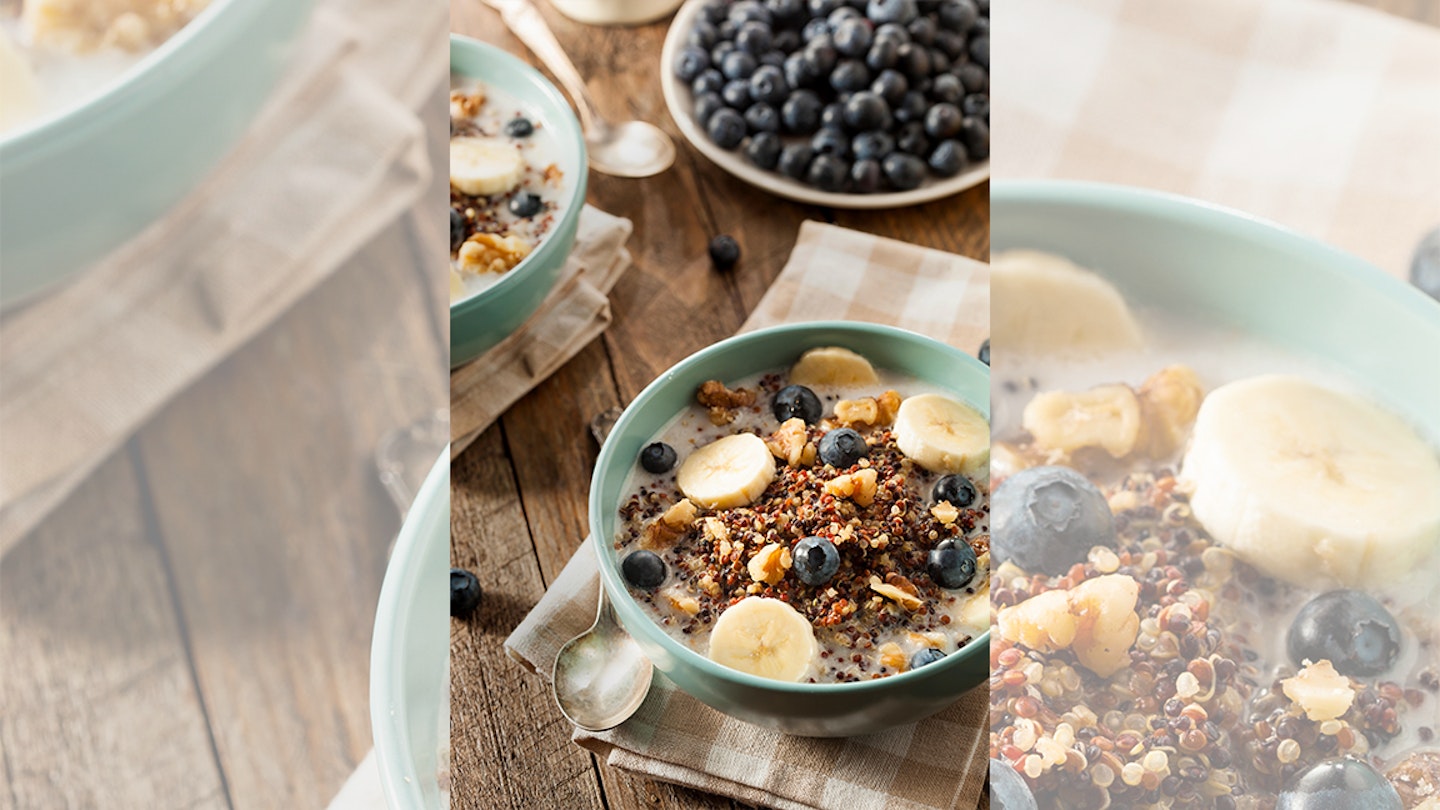Waking up early to a big cup of coffee is all well and good, but maximising the entire day before your race will yield even greater benefits on the trail. We’ve created this 24-hour pre-race timeline to help you make sure you’re completely prepared by the time you hit the start line.
This timeline offers guidance at key intervals before your run. We know racing can be nerve-wracking, whether you're a first timer or a seasoned runner. Consequently, the day before can drag and it's hard to know what to do. Take heart, though, we’ve covered everything you need to know. By using this guide you'll make use of the day before your race, so you can just get out there and enjoy the day.
09:00 (T-24): Breakfast
Race prep starts here. You need to be eating high-carb meals in the entire 24 hours before your race to make sure your muscles are stocked up with glycogen. Swamping your system with pasta at dinner time doesn't work as well.
Have a big breakfast consisting of lower glycaemic carbs. Carbohydrates with a low glycaemic index are those that offer more slow-releasing energy, rather than creating spikes in your blood sugar. This includes foods like porridge, wholegrain cereal, bananas, raisins, and grainy bread. Green vegetables, carrots, and pulses are also low GI foods.
12:00 (T-21): Hydration

Throughout today, make sure you’re drinking lots of water to hydrate your muscles and brain. It's best to start properly hydrating your body two or three days before your race. Make sure you drink between 1.5 and two litres per day.
Having a binge water-drinking session the morning of a race won't hydrate you properly. But at the other end of the scale, if you’re thirsty at the start line, you’re already dehydrated. Hydrating your body slowly and well in advance is key to performing at your peak, the same goes for eating properly.
17:00 (T-16): Organise
Although it echoes what your mum used to tell you before a school trip, you need to pack the night before. Lay out all kit you’re going to race in, including any energy gels and water bottles, and check it all off a list. Double, then triple check you have everything.
You’ll sleep much more soundly knowing that it’s all in hand and have less chance of forgetting something. Given this is for a race, everything is necessary and nothing is excess. So forgetting an item is a potentially serious problem you can easily avoid.
18:00 (T-15): Dinner
Since you’ve been eating high-carb meals (with low GI) all day, don’t worry about plating up a kilo of pasta now. You’ll just feel bloated and heavy. Instead, eat a balanced meal with a healthy proportion of protein and fats, as well as carbs. Your body will thank you for the range of nutrients, and for laying off the penne.
Just as you would normally, give yourself about three hours between dinner and going to bed. Anyone knows eating right before bed disrupts good sleep.
22:30 (T-10.5): Sleep

Adults need about eight hours of sleep each night as part of a healthy lifestyle. It's almost certain you already know that, so make sure you adhere to it. If you're a teenager, you'll need a bit more sleep because you're still growing and developing. Younger athletes should aim for around eight to 10 hours of sleep.
06:30 (T-2.5): Race day
Waking up a good couple of hours before the race starts gives your body time to adjust to the demands you’re going to put on it. A brisk shower will freshen your mind and muscles, but then it’s best to put the race out of your mind, challenging though that might be. It’s a tactic used by pro athletes to reduce tension in the hours before a big event.
07:00 (T-2): Race day breakfast

Now is the perfect time to eat and flood your muscles with glycogen without the risk of bloating your stomach. Low GI carbs, a moderate amount of protein, low fat, and low fibre is what you should aim for. A high-energy bowl of porridge with fruit and nuts for protein will prime your body for exercise. Then you can top yourself up with gels and quick-releasing sugar along the route.
If you can't shake the pre-race nerves and really can't eat, don't fret. You can substitute solid food for a high-carb drink such as a sports drink or smoothie.
08:30 (T-0.5): Warming up

If it wasn’t already obvious, you need to be ready by this point. Double-check your kit once more, including race number and timing chip. You need to be warming up too. It's wise to have a warm-up routine because it'll help you relax and focus. An effective warm-up will warm and loosen your muscles and tendons. In addition to these stretches, you should also do a few minutes of light jogging too. Just don't tire yourself out.
Just before the off, we recommend relaxing and soaking up the atmosphere of the start line. Your training and prep have got you to this point, so relish the challenge. Get stuck in and most importantly, enjoy yourself.
